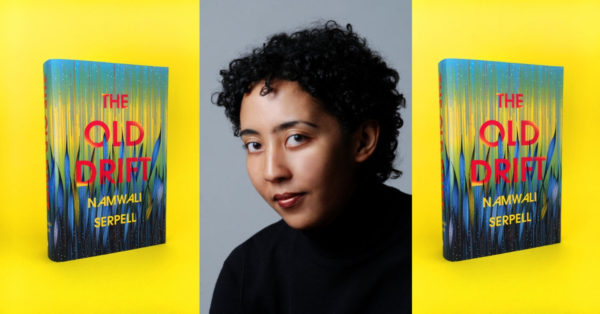
Namwali Serpell’s debut novel The Old Drift has been a hit with critics. Hailed as the Great Zambian Novel and reviewed for The New York Times Review of Books by Salman Rushdie, it has been high on reading lists. Recently, the UC Berkeley associate professor of literature was featured on the podcast Reading Women, a weekly release where women discuss books by or about women, co-hosted by Kendra Winchester and Autumn Privett.
In a transcript of their conversation which appeared on Literary Hub, she talks about the book and why she used mosquitoes as characters.
Here is an excerpt.
__________________________________________________
Autumn Privett:
One of the characters, and I don’t want to give away who or what it is, but one of the characters—I guess you can call it a character—in the book that is my favorite is the italicized narrator between each of the sections. And I love that you already mentioned an epic because I was like, “Ooo! We have a Greek chorus.” How did you come about to deciding that this book needed that kind of a Greek chorus to round out its characters?
Namwali Serpell:
So the voice of that swarm narrator—and we can give away that it’s a swarm of mosquitoes; I’ve spoken about it in too many contexts, and I think it’s come up in too many reviews to share a secret at this point—that voice came to me very early on, I think, around 2002, after I graduated, maybe 2001. And it belonged initially to the final descendant, who is the son born of Naila, who was one of the three children of uncertain paternity. And at some point, I realized that this, you know, this young man who would be telling the story of his family history, that he would exist in the future. And I also realized that I didn’t myself know who his father was and I didn’t want to know.
And so figuring out who he was as a person proved a task that I didn’t feel quite up to, especially because his voice was so grandiose, and it didn’t really seem like a human voice. And then at some point after I had returned to writing the book and was trying to figure out a way to keep that voice and also to use it as a way to, kind of, pull lessons or some kind of threads out of this very long and rich narrative, or what I hoped would be a long and rich narrative, and I needed some container for this voice. And I’m not sure, you know, people to ask me this, and I know where I was when the idea came to me and I know which elements all clicked together. I knew that the interest in flying things and the interest in blood, the interest in viruses and disease—all of that, and just, you know, the old drift itself, the place as the swamp. I knew that all those things would come together in this figure of the swarm of mosquitoes, but I can’t exactly put my finger on what triggered that idea. I’m glad it came to me, though, because I had a lot of fun writing those sections of the novel.
________________________________________
Read the transcript or listen to the podcast HERE.









COMMENTS -
Reader Interactions